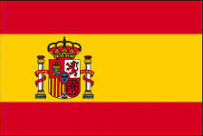International Relations at the FDE
Each year, it organises several hundred incoming and outgoing exchanges of students (Bachelor’s, Master’s or Doctorate), trainers, teacher-researchers and education experts. Scientific and pedagogical exchanges with foreign partners help to enrich the training.
The FDE maintains close relations with some twenty countries, including: Switzerland, Finland, Thailand, Morocco, the United States, Canada, Spain, the Czech Republic.
Every year, it organises several hundred incoming and outgoing exchanges of students (Bachelor’s, Master’s or Doctorate), trainers, teacher-researchers and experts in education. Scientific and pedagogical exchanges with foreign partners help to enrich the initial and continuing education of our students and teachers.
Issues related to linguistic and cultural diversity, international collaboration and mobility, or the hosting of foreign students or colleagues have mobilised the Faculty of Education and led it to resolutely focus on international issues for many years. Aware of the rapid evolution of education and teacher training systems, the FDE has developed an international policy based on interculturality and the discovery of education systems throughout the world.
The principles
Three principles underlie the international policy of the Faculty of Education :
The missions

The actions



